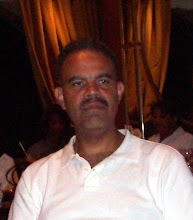In my view this is an attempt not to define what the pedagogy of poverty means, but to make teachers, and administrator’s aware of the methodologies and ideologies that strangle the system. This article is a scholarly attempt to be forthright about issues that plaque urban schools. Haberman attempts to engage in dialogue about teacher and student, analyzing from both perspectives what works and what doesn’t. He also makes a good argument for what it means to be a successful teacher, who is in control and one who is not.
It is my view that in order to create environments that produce progressive students in today’s society; all constituencies have to be involved. This shall include parents, business people, local politicians and anyone who interacts with the community at large. With this involvement the student will and should feel that there is genuine concern about the quality of their education.
Of course there are inherent problems with the pedagogies in urban schools. However I don’t think that they are insurmountable. It is my belief that in order to have positive results one has to recognize what works and what doesn’t, and we can’t look to place blame. Doing so accomplishes nothing; therefore critically thought resolutions to the problems are more effective.
There is a plethora of ideas that becomes mindful, while reading this article, and I can go on for pages dissecting the dialogue with my personal views. However Habeman is successful in bringing the most mundane issues regarding the pedagogy of poverty to the forefront.


